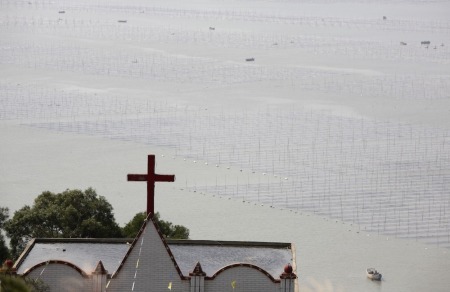China's closure of Catholic orphanages for disabled children betrays hope of Vatican Agreement: Priest

China's mass closure of Catholic orphanages, largely made up of children with mental and physical disabilities, betrays the hope of the controversial 2018 Vatican agreement that promised a “better day” for the Church, a priest has said.
In a recent article published by Asia News, a Chinese priest who goes by P. Wendao urged the pope and the universal Church to stop the closure of Catholic orphanages after authorities with the Chinese Communist Party shuttered several homes, transferring children — many of them disabled — to other facilities.
“It is clear that those government officials are not planning to serve abandoned children, but only to follow their senior officials’ political orders, namely, to do everything possible to reduce the influence of the Catholic Church in China,” the priest writes.
“For this reason, at present, the government is relentlessly suppressing and imposing various measures of control on Catholic social services or Church life.”
Recently, the CCP shut down two Catholic Church-run children’s homes: St Joseph’s Disabled Infant Home in Renqiu, Xianxian (Diocese of Cangzhou), and the Liming (Dawn) Home in the Diocese of Zhaoxian, both in Hebei province.
The CCP also shuttered Catholic-run orphanages in Zhangjiakou and Zhengding, both in Hebei. The same happened two years ago to an orphanage in Baoji, Shaanxi province, run by the Sisters of the Sacred Heart.
In his letter, Wendao noted that the services provided by these facilities have been respected and appreciated by Chinese citizens, even government officials.
“These disabled children’s homes were respected and deeply loved by many Chinese; many caring people visited and served there, bearing good fruits of love to the Church and society. People learned to care and respect God’s ‘little ones,’” he said, adding that the children being cared for at these homes are usually among the most neglected by society.
“Most of the children cared for by the sisters (nuns) are disabled, some physically, others mentally. They need more care than others; abandoned by parents and society, they are burdened by physical and emotional pain. Against all these injustices, they have only the weakest of voices, and now, in light of such a heavy reality, will the universal Church remain silent and ignorant of their call for help?”
By transferring the children to state-run facilities — where other reports claim they are left "emaciated" and "low-spirited" — the government is “not only ignoring the beautiful contribution and quality social services provided by the Catholic Church, but wants in fact to destroy them,” he said.
The priest added that when the China-Vatican Agreement was signed in 2018, the Church in China felt encouraged, and “everyone was waiting for that ‘better day’ following the signing.”
The deal, the details of which have never been published, permits the Chinese government to propose names for new bishops to the Vatican through its state-approved Chinese Patriotic Catholic Association, with the pope having veto power on the decision.
But despite the signing of the agreement and renewal last year, the unofficial Catholic Church in China continues to suffer and religious persecution has actually worsened in recent years.
The CCP has used the pandemic to shut down Catholic celebrations and mass, targeted schools to make sure neither teachers nor students adhere to any religion, and closed churches and seminaries, he said.
“In the past, when such things happened, the Chinese Church was eager to encourage and support the universal Church. Now, because of this ‘agreement,’ the pope's voice of justice has been silent,” the priest said.
“People who believe in Christ are a minority in China. They are often discriminated against and suppressed. It is difficult for the outside world to hear their voices.”
The clampdown on Catholic and Protestant orphanages and other church-run institutions across China comes after the passing of the Regulations on Religious Affairs, enforced in February 2018. The new rules stipulate that “public interest charitable activities must not be used to proselytize by any organization or individual” in China.
According to religious liberty magazine Bitter Winter, in May 2020, the Cangzhou city government in the northern province of Hebei ordered the director of a local Catholic orphanage for disabled children to remove paintings of the Virgin Mary, liturgical calendars, and all other religious symbols from a small church on site.
The director was demanded to sign a statement promising to stop using the church, and children’s religious textbooks were also banned, with authorities claiming that “charitable institutions are not allowed to have religious overtones.”
In August 2019, over 40 personnel from the Civil Affairs Bureau and other government institutions stormed into a Catholic orphanage in Taiyuan. Authorities removed the children from the facility, threatening to accuse the leaders of the orphanage of “illegal adoption” practices.
“The Communist Party has been trying to restrict our activities, fearing that children would be exposed to religion,” a local churchgoer told the outlet. “All religious orphanages for disabled children will gradually disappear in the future.”
Open Doors ranks China at No. 17 on its World Watch List of 50 countries where Christians are most persecuted.






















